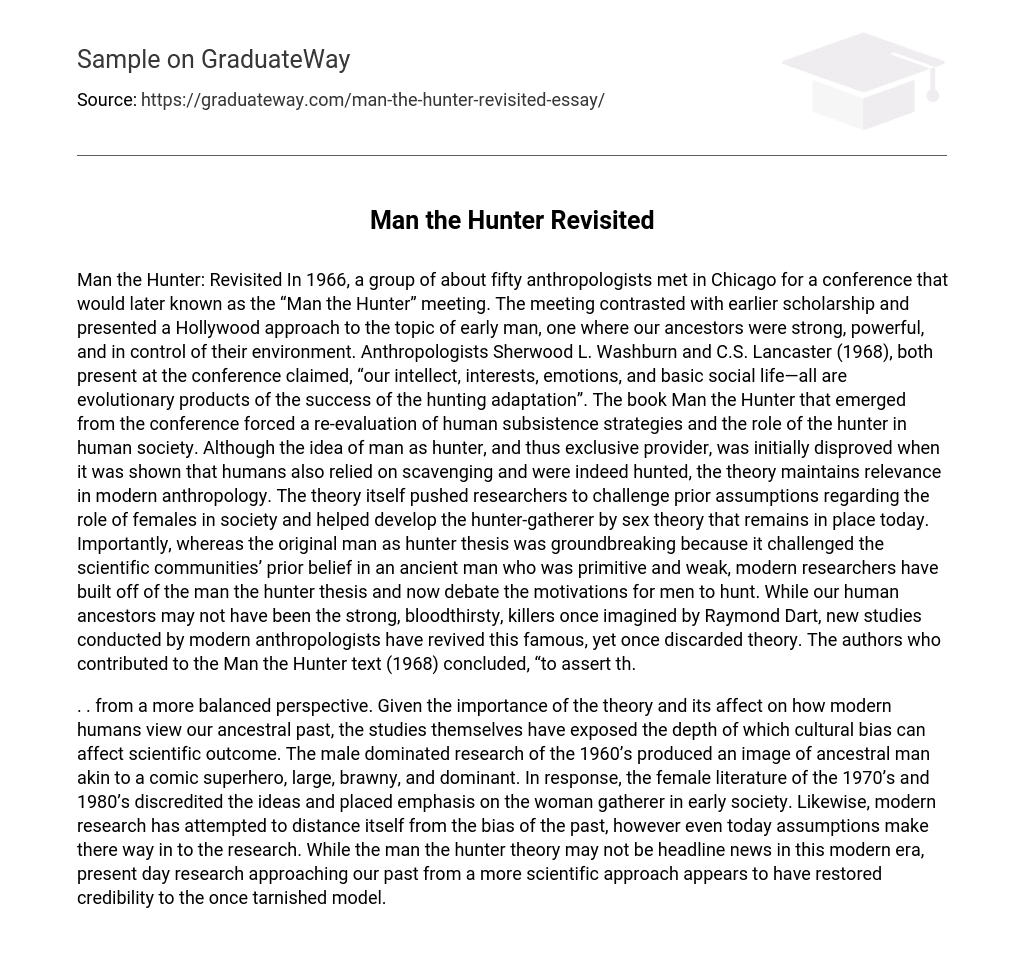In 1966, a conference known as the “Man the Hunter” meeting took place in Chicago, attended by approximately fifty anthropologists. This conference presented a different perspective on early man, portraying our ancestors as strong and powerful, in control of their environment. Anthropologists Sherwood L. Washburn and C.S. Lancaster, who were present at the conference, asserted that our intellect, interests, emotions, and basic social life are all evolutionary outcomes of the success of the hunting adaptation. The resulting book, Man the Hunter, prompted a reassessment of human subsistence strategies and the role of hunting in human society. Although it was later revealed that humans relied on scavenging and were themselves hunted, the theory of man as hunter remains relevant in modern anthropology. This theory led researchers to question previous assumptions about the role of females in society and contributed to the development of the hunter-gatherer by sex theory that is still accepted today. While the original concept of man as hunter challenged the prevailing belief in primitive and weak ancient man, contemporary researchers now build upon this thesis to explore the motivations behind men’s hunting activities.While our human ancestors may not have been the strong, bloodthirsty killers that Raymond Dart once imagined, modern anthropologists have conducted new studies that have revived this famous theory. The authors of the Man the Hunter text (1968) concluded, “to assert that our ancestors were purely plant-eating is now known to be incorrect.”
. . from a more balanced perspective. Given the importance of the theory and its affect on how modern humans view our ancestral past, the studies themselves have exposed the depth of which cultural bias can affect scientific outcome. The male dominated research of the 1960’s produced an image of ancestral man akin to a comic superhero, large, brawny, and dominant. In response, the female literature of the 1970’s and 1980’s discredited the ideas and placed emphasis on the woman gatherer in early society. Likewise, modern research has attempted to distance itself from the bias of the past, however even today assumptions make their way into the research. While the man-the-hunter theory may not be headline news in this modern era, present-day research approaching our past from a more scientific approach appears to have restored credibility to the once tarnished model.





